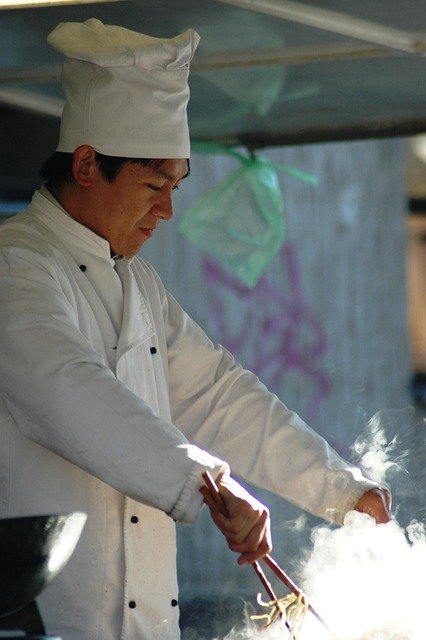Discover Restaurant & Catering Job Opportunities Near You
Looking to launch or progress your career in hospitality? The restaurant and catering industry offers a variety of roles—from kitchen and service staff to event coordination positions. This article walks you through where to find opportunities, how to interview effectively, and tips to stand out in today’s job market.

Where Are the Top Platforms to Search for Restaurant and Catering Jobs?
Finding the right job opportunities starts with knowing where to look. Several platforms specialize in hospitality positions, offering targeted listings that match your skills and location preferences. Indeed remains one of the most comprehensive job search engines, featuring thousands of restaurant and catering positions updated daily. The platform allows you to filter by experience level, salary range, and specific job types.
ZipRecruiter excels at connecting hospitality professionals with employers quickly, often featuring immediate hiring opportunities. Their algorithm matches your profile with relevant positions, streamlining the application process. For more specialized roles, Culinary Agents focuses exclusively on food service careers, from entry-level positions to executive chef opportunities.
LinkedIn has become increasingly valuable for restaurant professionals, especially for management and corporate positions. Many restaurants and catering companies post openings directly on their company pages. Additionally, local restaurant association websites often maintain job boards specific to your area, providing insider access to positions that may not appear on larger platforms.
How Should You Prepare for a Restaurant Job Interview?
Restaurant job interviews often differ from traditional corporate interviews, focusing heavily on practical skills and customer service abilities. Research the establishment thoroughly before your interview, including their menu, dining style, and company culture. This knowledge demonstrates genuine interest and helps you tailor your responses to their specific needs.
Prepare specific examples of how you’ve handled challenging situations, whether dealing with difficult customers, working under pressure, or collaborating with team members. Many restaurant interviews include scenario-based questions, so having concrete examples ready shows your problem-solving abilities.
Dress appropriately for the position you’re seeking. While fine dining establishments may expect more formal attire, casual dining positions typically require clean, professional clothing. Arrive early to observe the restaurant’s atmosphere and operations, which can provide valuable talking points during your interview.
Practice common restaurant interview questions, such as explaining your availability, describing your experience with point-of-sale systems, or discussing how you handle multiple tasks simultaneously. Be prepared to discuss your physical ability to stand for extended periods and work in fast-paced environments.
What Key Skills Do Employers Value in Catering Roles?
Catering positions require a unique blend of culinary skills, organization abilities, and customer service excellence. Employers highly value candidates who demonstrate strong time management skills, as catering events operate on strict timelines with little room for error. The ability to prepare large quantities of food while maintaining quality standards remains essential.
Communication skills rank among the most important qualifications, as catering professionals frequently interact with clients, venue staff, and team members. Clear communication ensures events run smoothly and client expectations are met consistently.
Flexibility and adaptability are crucial, as catering events often present unexpected challenges. Weather changes, menu modifications, or equipment issues require quick thinking and creative problem-solving. Employers seek candidates who remain calm under pressure and can adjust plans efficiently.
Physical stamina and teamwork abilities are equally important. Catering involves lifting heavy equipment, standing for long periods, and working closely with others in high-stress situations. Experience with food safety protocols and knowledge of dietary restrictions also make candidates more attractive to employers.
What Catering Job Opportunities Are Worth Exploring Now?
The catering industry offers diverse career paths beyond traditional cooking and serving roles. Event coordination positions combine hospitality skills with project management, overseeing entire events from planning to execution. These roles often offer better work-life balance and higher earning potential than traditional restaurant positions.
Corporate catering has grown significantly, with many companies outsourcing employee meals and business events. These positions typically offer more regular schedules and benefits compared to traditional catering roles. Wedding and special event catering remains consistently strong, especially in metropolitan areas where celebration budgets continue to increase.
Food truck catering has emerged as an exciting niche, combining mobile food service with event catering. Many professionals find this field offers entrepreneurial opportunities alongside steady employment. Healthcare facility catering provides stable, long-term employment with benefits, serving hospitals, senior living facilities, and rehabilitation centers.
How Can You Stand Out When Applying for Hospitality Jobs?
Differentiate yourself by highlighting transferable skills from other industries. Customer service experience from retail, organizational skills from administrative work, or leadership experience from any field can strengthen your application. Many successful hospitality professionals transition from other careers, bringing valuable perspectives to their new roles.
Create a portfolio showcasing your work, especially for kitchen or management positions. Include photos of dishes you’ve prepared, testimonials from previous employers, or examples of successful events you’ve managed. Visual evidence of your capabilities makes a lasting impression on hiring managers.
Obtain relevant certifications to demonstrate your commitment to the industry. Food safety certifications, responsible beverage service training, or specialized culinary credentials show employers you’re serious about your career development. Many of these certifications can be completed online or through local community colleges.
Network within the local hospitality community by attending industry events, joining professional associations, or volunteering at food-related charity events. Many positions are filled through professional connections before being advertised publicly. Building relationships with other industry professionals can lead to opportunities and valuable career advice.
| Platform | Primary Focus | Key Features |
|---|---|---|
| Indeed | General job search with hospitality filters | Comprehensive listings, salary insights, company reviews |
| ZipRecruiter | Quick matching and immediate hiring | Algorithm-based matching, mobile-friendly application |
| Culinary Agents | Food service career specialists | Industry-specific roles, career development resources |
| Professional networking and management roles | Company connections, professional development content |
Understanding the restaurant and catering job market requires knowing where to search effectively, how to present yourself professionally, and which skills employers value most. The industry continues evolving, creating new opportunities for dedicated professionals willing to develop their skills and adapt to changing demands. Success in hospitality careers often depends more on attitude, work ethic, and customer service abilities than extensive previous experience, making it an accessible field for motivated job seekers.




